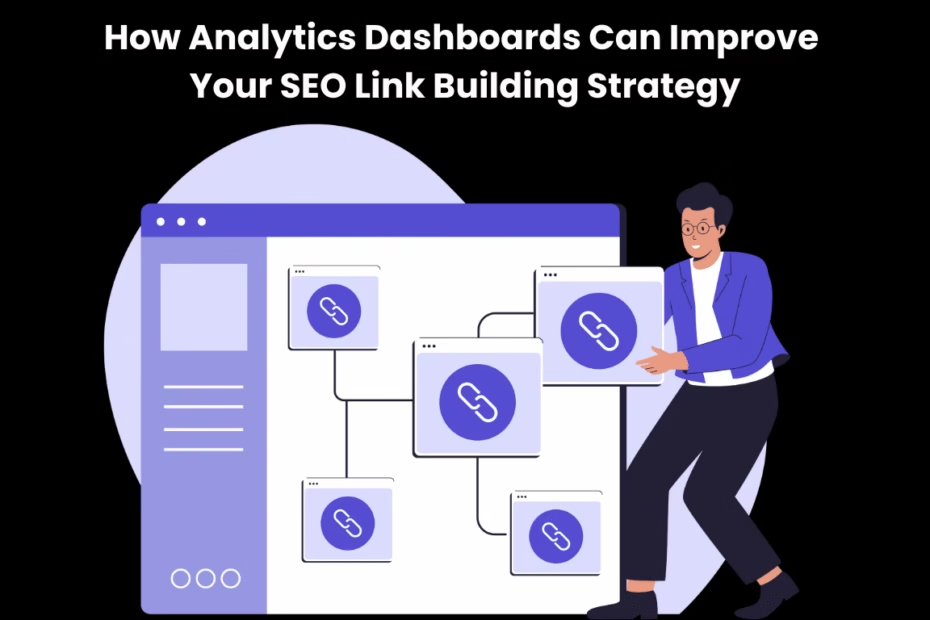In the fast-changing world of digital marketing, link building remains one of the most powerful tools for improving search engine visibility. Yet many businesses still fail to track the performance of their backlinks effectively, leaving them with little understanding of what works and what doesn’t. This is where analytics dashboards come into play. By consolidating data from multiple sources, they help you visualize progress, identify opportunities, and refine your strategies with precision. Partnering with experts such as Walker Analytics can ensure that your link-building efforts are monitored and optimized for long-term growth.
The Role of Link Building in SEO Success
Link building is more than simply acquiring backlinks; it’s about building authority, trust, and relevance in your industry. Search engines view high-quality inbound links as signals that your content is valuable and trustworthy. However, not all links are equal. A handful of authoritative backlinks can outweigh hundreds of low-value mentions, which makes it essential to distinguish between links that drive results and those that do not.
Analytics dashboards facilitate this evaluation by organizing and presenting backlink data in a clear and accessible manner. Instead of manually sifting through reports, marketers can instantly see which links are boosting rankings, bringing referral traffic, or generating conversions. This clarity provides the foundation for a more strategic approach to link acquisition.
Centralizing Data for Smarter Decisions
Most link-building campaigns rely on a mix of tools—SEO platforms, analytics software, and manual tracking sheets. While each serves a purpose, the challenge lies in connecting the dots. Analytics dashboards bring everything together in one place, saving time and reducing the risk of oversight.
When all key metrics are displayed in a single view, you can quickly identify trends and outliers. For example, links from a particular industry consistently deliver higher referral traffic, prompting you to invest more effort in outreach within that niche. Similarly, tracking anchor text distribution across your backlink profile can reveal whether your strategy appears natural to search engines, or if adjustments are needed to avoid penalties.
Measuring the True Value of Backlinks
One of the most common mistakes in link building is focusing exclusively on quantity. Without proper measurement, it’s easy to assume that more backlinks automatically translate to better rankings. Analytics dashboards counter this assumption by revealing the real impact of each link.
By tracking metrics such as referral sessions, time on site, and conversion rates, you can determine whether a backlink is driving qualified visitors or merely inflating numbers. High-quality dashboards also integrate data from tools like Google Analytics and Google Search Console, providing a comprehensive view of performance. Over time, this helps you prioritize partnerships and outreach efforts that deliver meaningful results, rather than chasing vanity metrics.
Identifying Gaps and Opportunities
A powerful aspect of analytics dashboards is their ability to highlight missed opportunities. For instance, you may discover that specific high-performing backlinks are pointing to outdated content or blog posts that no longer reflect your current messaging. By updating those assets or creating fresh, related content, you can maximize the value of existing links.
Dashboards also make it easier to spot competitive advantages. Comparing your backlink profile to that of your competitors can reveal areas where you are falling behind or identify websites that are open to linking to similar businesses. Acting on this intelligence can give you a measurable edge in link acquisition.
Streamlining Reporting and Accountability
For agencies and in-house teams, clear reporting is essential. Stakeholders want to see proof that link building is driving growth, not just assumptions or anecdotal evidence. Analytics dashboards transform raw data into visually engaging reports that are easy to interpret, even for non-technical audiences.
This transparency fosters trust and ensures accountability. By presenting data in a consistent and digestible format, dashboards make it easier to demonstrate progress and justify investment in ongoing link-building campaigns. Regular reporting also helps teams stay aligned, ensuring that everyone is working toward the same measurable goals.
Building a Long-Term Link Building Framework
Sustainable SEO success is built on continuous refinement, and dashboards play a critical role in that process. By tracking results over time, they allow you to adjust your strategy based on what the data reveals. Instead of chasing short-term wins, businesses can build frameworks that prioritize quality, consistency, and long-term growth.
This approach not only improves rankings but also strengthens your brand’s authority and credibility. As your backlink profile grows in a strategic and measurable way, you create a solid foundation for sustained online visibility and business success.
Read More: An Ultimate Guide To PR Link Building
Conclusion
Analytics dashboards are no longer optional for businesses that want to take link building seriously. They provide clarity, efficiency, and insights that help transform backlink strategies from guesswork into precision-driven campaigns. By centralizing data, measuring value, and highlighting opportunities, dashboards enable marketers to make smarter decisions and deliver tangible results. With the right expertise, such as that offered by Walker Analytics, businesses can elevate their SEO link-building strategies and unlock greater long-term potential.

